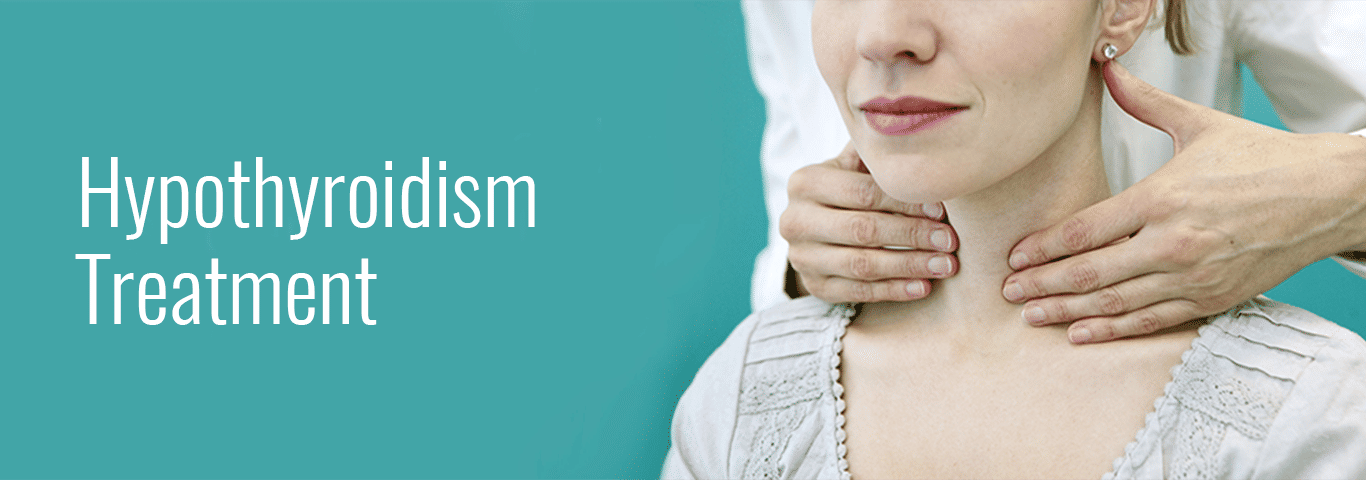8 Signs and Symptoms of Hypothyroidism

About 12% of people in the world experience abnormal thyroid function at some point during their lives. Women are 8 times more likely to suffer from a thyroid disorder than men. Also, this problem increases with age and might affect adults differently than children.
Your thyroid hormone controls the coordination of energy, growth and metabolism in your body. Problems occur when this hormone’s levels become too high or low. Hypothyroidism, also known as low levels of thyroid hormone, slows down your metabolism and decreases growth and repair of many parts of the body. It can cause a variety of signs and symptoms in your body.
Here are 8 common symptoms of hypothyroidism.
1. Feeling tired
The most common symptom of hypothyroidism is feeling worn out. Thyroid hormone balances energy and can influence whether you feel up for some activities, or you are ready to sleep.
Thyroid hormone gets signals from the brain and works with cells to change their functions, depending on what else is happening in your body.
People with high levels of thyroid hormone feel nervous, whereas people with low thyroid feel exhausted. They feel unrested, even though they might be sleeping more. If you are feeling sleepier than usual without a good reason, it might be a sign of hypothyroidism.
2. Feeling cold
Heat is a byproduct of losing calories. For example, consider how hot you feel when you work out, it happens because you are burning calories. While you are sitting, you burn up a small number of calories. However, in the case of hypothyroidism, your basal metabolic rate decreases, thus minimizing the amount of heat you create.
Also, thyroid hormone prevents brown fat from maintaining body heat during cold climates. Brown fat is a specialized type of fat that generates heat, but hypothyroidism prevents it from doing its job. That is why low thyroid hormone makes you feel colder than others around you. However, if you have always wanted the room warmer than others around you, maybe you are built that way.
3. Feeling depressed
Hypothyroidism and depression are often linked together. Even though the reason for this is unclear, some researchers say it might be a mental symptom due to an overall reduction in energy and health.
57% of men and 64% of women with hypothyroidism have reported feelings of depression. About the same number of men and women also suffer from anxiety. Also, postpartum hormone fluctuations are a common cause of hypothyroidism; this might add up as a contributing factor to postpartum depression.
4. Weakness and pain in joints and muscles
Low thyroid hormone leads to catabolism, that is when your body breaks down body tissues like muscle for energy. Catabolism decreases muscle strength, leading to feelings of weakness and aching.
It is alright if you feel weak once in a while, but people with hypothyroidism feel weaker compared to healthy people. Furthermore, 34% of people with low thyroid hormones get muscle cramps even though they are not doing any activities.
Remember, weakness and pains do happen after strenuous activity. However, new, and increasing, weakness or pain is enough reason to consult your doctor.
5. Weight gain
Weight gain is another symptom of hypothyroidism. People with low-thyroid move less — so they are allowing their fat tissue, livers and muscles to hold on to calories.
When your thyroid levels are low, your metabolism switches modes. So, instead of burning calories for activity, the amount of energy you use at rest decreases. In turn, your body starts storing more calories from your diet as fat, leading to weight gain.
If number of calories you consume remains constant, but you are still experiencing weight gain, consider whether other changes in your lifestyle might be the cause. If you think you are gaining weight despite a good diet and exercise routine, consult a doctor. It might be a sign that something else is going on.
6. Trouble with remembering or concentrating
Many people with hypothyroidism have complained about mental fogginess and trouble concentrating. The way this mental fogginess effect varies from person to person.
The causes of mental fogginess are not yet entirely understood, but problems with memory reduce when treating low thyroid hormone. Difficulties in concentration or memory can occur to everyone, but if they are severe, they could be a sign of hypothyroidism.
7. Irregular or heavy periods
Some researchers also link both heavy and irregular menstrual bleeding to hypothyroidism. Thyroid hormone is known for interacting with other hormones that control your menstrual cycle. So, abnormal levels of thyroid can disrupt their signals. Thyroid hormone also directly affects your ovaries and uterus.
There can be other problems besides hypothyroidism which also cause this condition. If you have heavy or irregular periods that you are concerned about, consider consulting a gynaecologist before worrying about your thyroid.
8. Constipation
Low thyroid levels stop your colon from performing its necessary functions. Even though constipation is a common complaint in people with hypothyroidism, for constipation to be the only or most serious symptom is uncommon.
If you experience constipation but feel fine otherwise, try some natural laxatives before concerning yourself about thyroid. If they do not work and your constipation worsens, or you spend several days passing no stool with stomach pain and vomiting, seek medical care.
Hypothyroidism, also known as low thyroid is a common disorder. It can cause various symptoms, including weight gain, fatigue and feeling cold. It can also cause problems to your skin, hair, muscles, memory and mood.
Remember, none of these symptoms directly connect you with hypothyroidism. However, if you are suffering from many of these symptoms or they seem to be worsening, consult your doctor, decide if you require testing for hypothyroidism.
It is usually treatable with over the counter medications. You can also try some homeopathy medicines. If your thyroid hormone is low, a simple treatment could benefit your quality of life.


